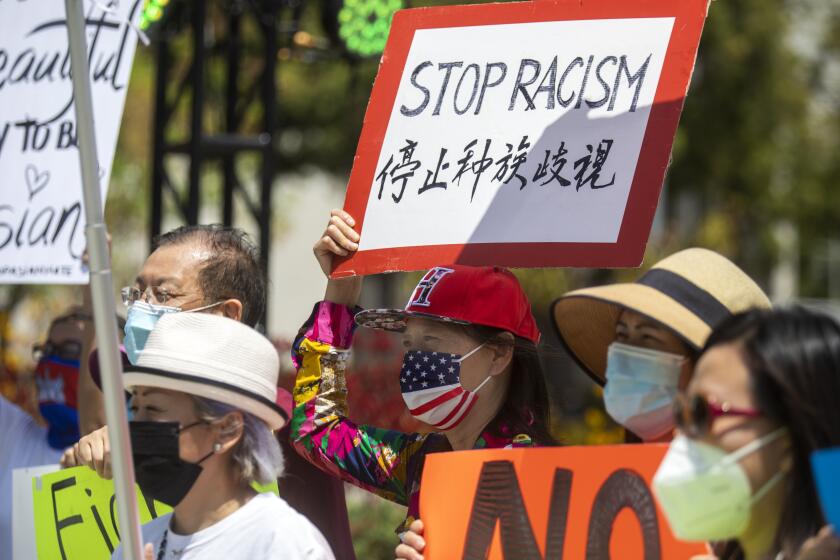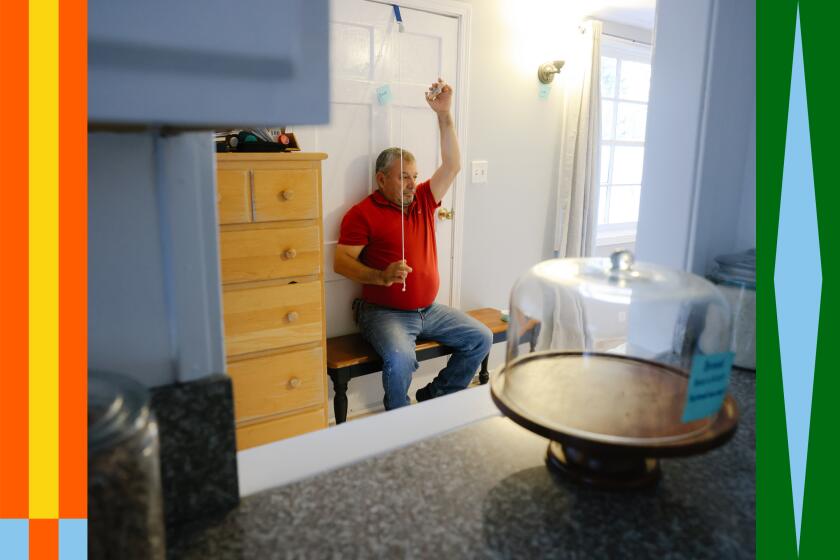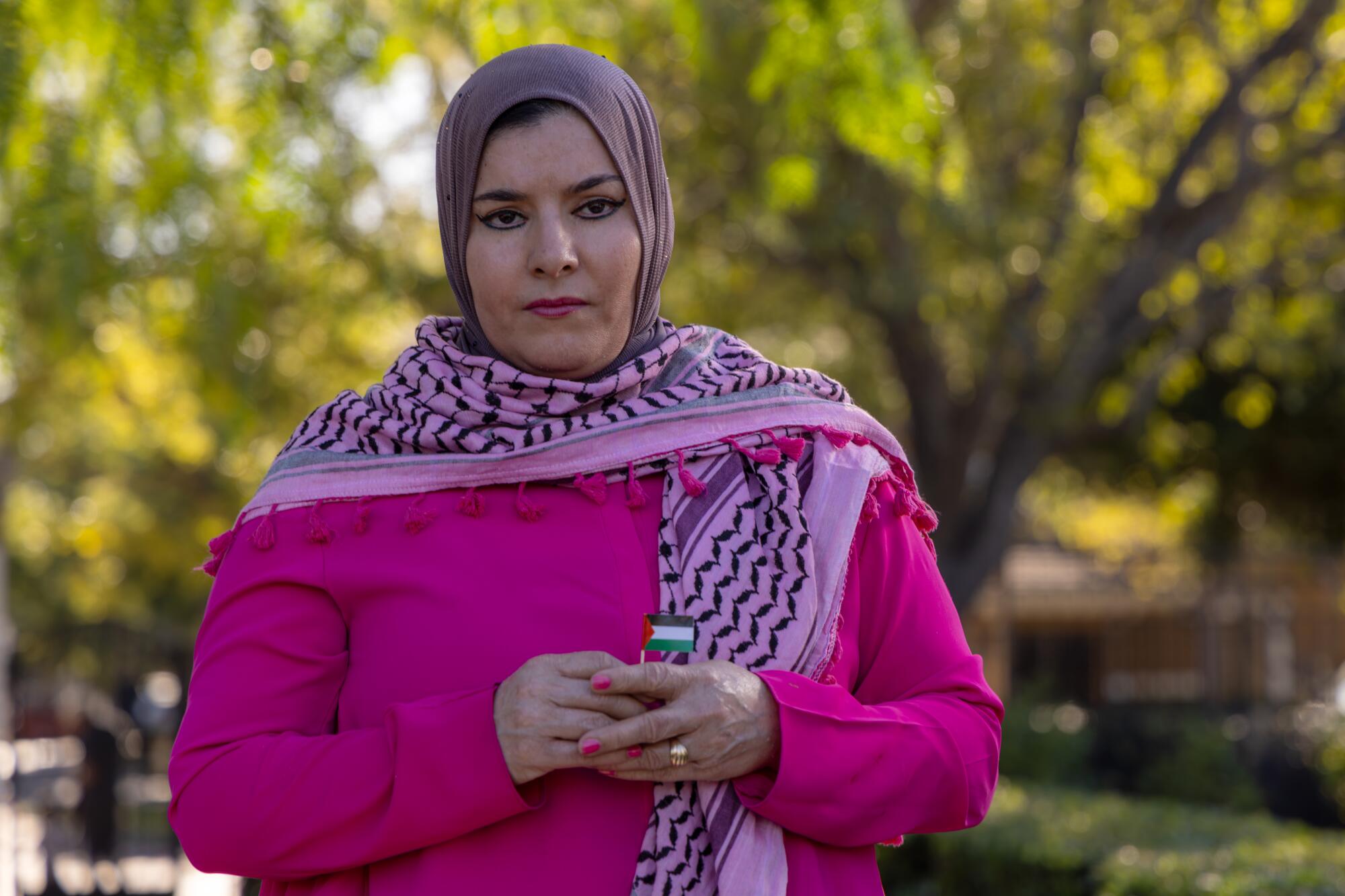
- Share via
Last week, Fatmah Muhammad answered a phone call from someone who appeared to be an inquisitive customer.
He knew she was Palestinian American, the caller said, and he was interested in placing an order from her company, Knafeh Queens, which specializes in a sweet-and-savory dessert she learned to make from her mother.
“But make sure you put Israeli flags all over the knafeh,” the caller said, before abruptly hanging up.
California is officially launching a hotline this week for people to report acts of hate and bias, as the state grapples with a rise in reported hate crimes.
Realizing he’d called to harass her, she felt crestfallen, thinking back to a few weeks earlier when someone messaged her company’s Instagram account saying they hoped devastation would befall her family’s hometown in the West Bank.
“That mockery is painful,” she said. “It’s scary.”
But in recent weeks she has also gotten inquiries from several new customers eager to support her Rancho Cucamonga-based baking business. A few customers, she said, made a point to tell her in Arabic that they loved her.
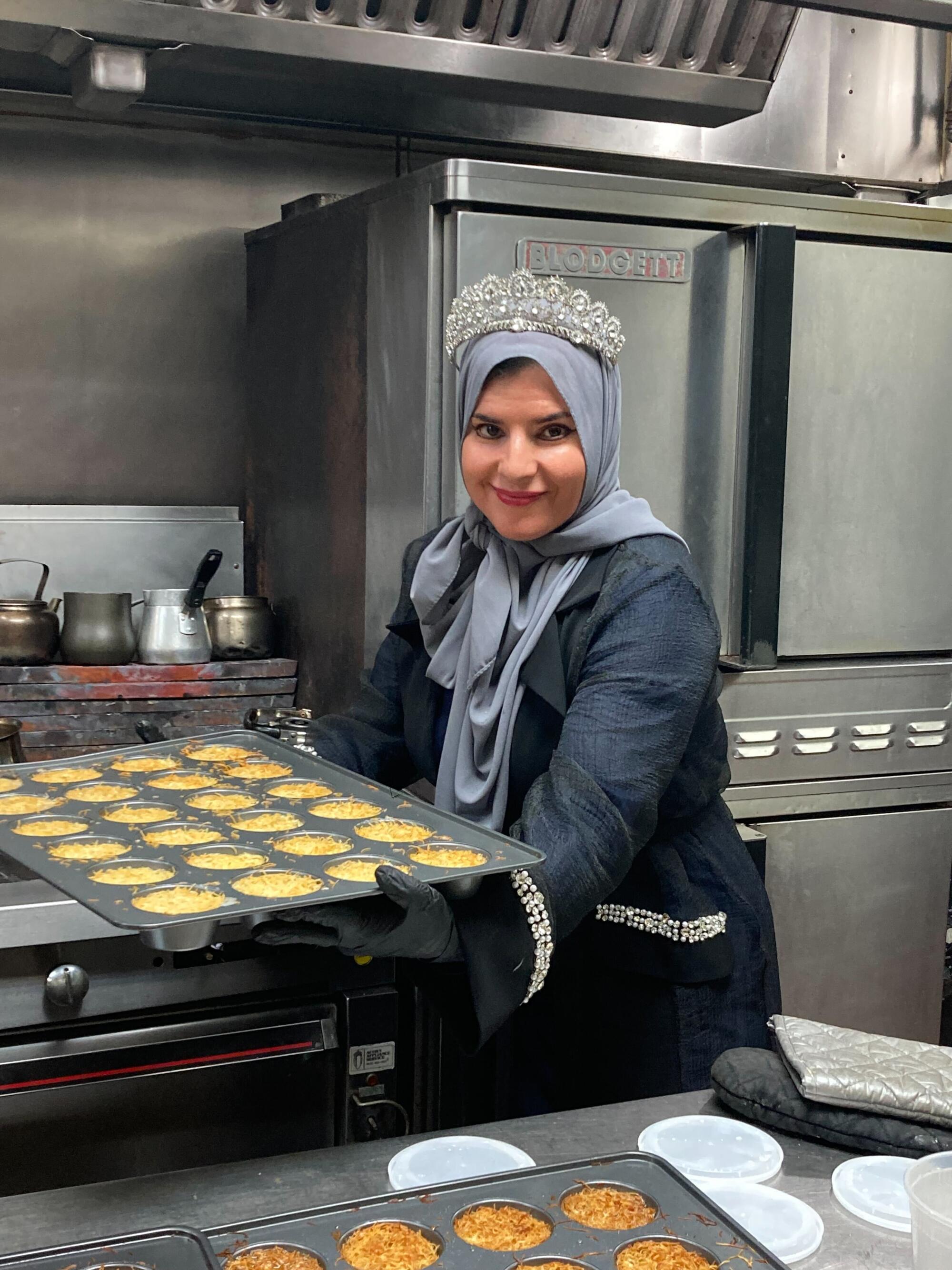
For some Arab American small-business owners across the state, the last month has brought devastating news from abroad, a heightened level of tension and fear to their daily work routines, but also, at times, a rush of new customers eager to show support with their pocketbooks.
“We have a line all the way out the door right now,” said an employee who answered the phone at Urban Deli in Petaluma on a recent afternoon.
Earlier in the day, the Council on American-Islamic Relations, a national civil rights group, had released a statement condemning vandalism at the restaurant, where someone sprayed graffiti and etched messages into the windows — an act Petaluma police say they’re investigating as a hate crime because the derogatory words appeared to be directed at the deli’s Palestinian American co-owner.
“We are seeing a drastic, really unprecedented increase in hate and bias incidents against Arabs,” said Dina Chehata, a civil rights attorney who works for the L.A. chapter of CAIR. “It’s just something we should never have to see, whether it is affecting our community or our Jewish brothers and sisters.”
Immigrants in the U.S. report high levels of on-the-job discrimination. Among those who are likely undocumented, it’s even worse.
The group recently released statistics showing a sharp increase in the number of anti-Muslim and anti-Arab bias complaints reported in the month following Oct. 7, when Hamas militants waged a brutal incursion in southern Israel, killing more than 1,400 people and taking 240 hostages, according to the Israeli government. The Israeli military responded with the ongoing bombardment of the Gaza Strip, killing more than 11,000 people, including thousands of women and children, according to the Hamas-run Gaza Health Ministry.
Between Oct. 7 and Nov. 4, CAIR said, its national headquarters and chapters across the country received a combined 1,283 requests for help and reports of bias incidents; during the average month last year, the group received 406 complaints.
The complaints came from a broad swath of Americans, including students, doctors, business owners and protesters, CAIR said, noting that it was the largest wave of complaints it has documented since the winter of 2015 when then-candidate Donald Trump called for “a total and complete shutdown of Muslims entering the United States.”
In Anaheim’s Little Arabia neighborhood, a stretch with several markets and restaurants, cafe owner Asem Abusir, who is from the West Bank city of Nablus, told The Times last month that, after a pro-Palestinian demonstration took place on the main street outside his shop, a one-star review soon appeared on his Yelp business page. It claimed, he said, that he hosted “disgusting Palestinians” who should suffer death.
“That was very strong, unacceptable language,” Abusir said. “But the feedback from our community has shown that they support us.”
Jewish-owned businesses have also been targeted in recent weeks.
In Los Angeles, someone spray-painted messages — including the phrase “How many dead in the name of greed?” — beneath a mural outside Canter’s, one of the city’s most famous Jewish delis. Los Angeles police have said they’re investigating the messages at the deli, as well as another act of vandalism at a location on La Brea Avenue, as possible hate crimes.
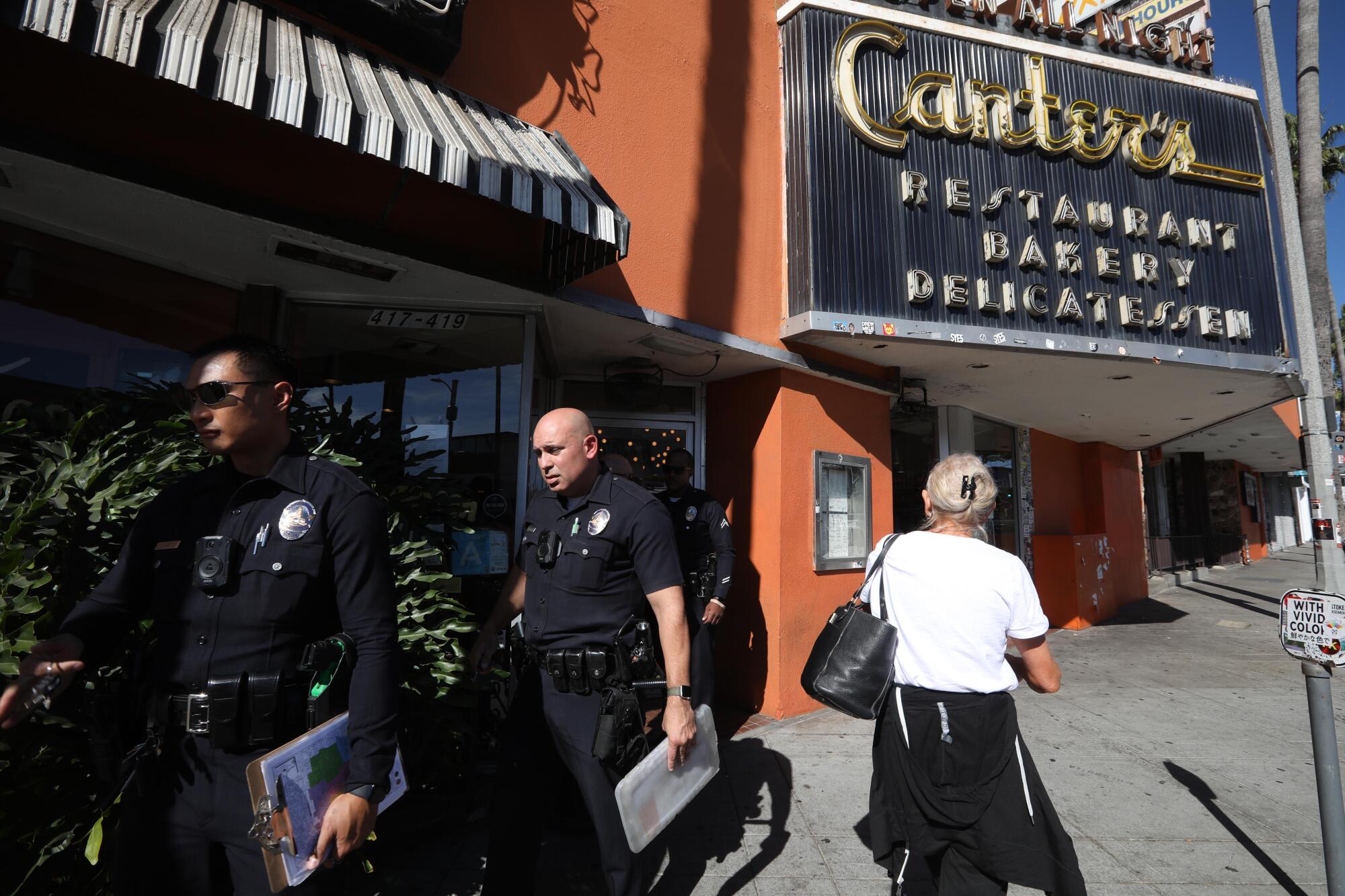
In San Francisco, the owner of an ice cream shop called Smitten posted on her company’s Instagram last month saying authorities were investigating graffiti sprayed onto her company’s flagship location as a hate crime because the messages suggested she had been targeted because she is Jewish.
“I initially felt only fear and deep sadness,” the owner wrote, adding that she had been deeply touched by all the people who reached out to offer support. “We cannot choose how others treat us, but we can choose how we respond. I choose love. Now more than ever.”
During a briefing last month, White House Press Secretary Karine Jean-Pierre said the Biden administration was taking steps to address what she called an “alarming rise” in reported antisemitic incidents at schools and college campuses. Both antisemitism and Islamophobia, she said, must be denounced “without equivocation.”
Kenneth Gray, a retired FBI agent who worked counter-terrorism cases for several years, said that armed conflicts abroad always draw concern about spillover acts of violence in the U.S. Keeping a vigilant eye out for hate crimes, including targeted vandalism, he said, is crucial.
“That is not something that should be ignored,” said Gray, who is now a senior lecturer at the University of New Haven. “It’s something that could escalate.”
For Muhammad, the last few weeks have been deeply painful.
She can’t stop thinking about her aunts, uncles and cousins in the West Bank, and images of the devastation and death in Gaza leave her feeling helpless. She often thinks about the threatening Instagram message she got on her business account after reposting a video from a city in the West Bank along with a caption that read “HORRIFIC” and a note saying it wasn’t far from her family’s hometown.
The commenter singled out her family’s hometown by name, which terrified her because she had not included it in her post. The town, the person wrote, was “our next target,” ending their message with emojis of an Israeli flag and a laughing face.
“That was just such a personal attack, to attack where my parents were raised,” she said, stifling tears.
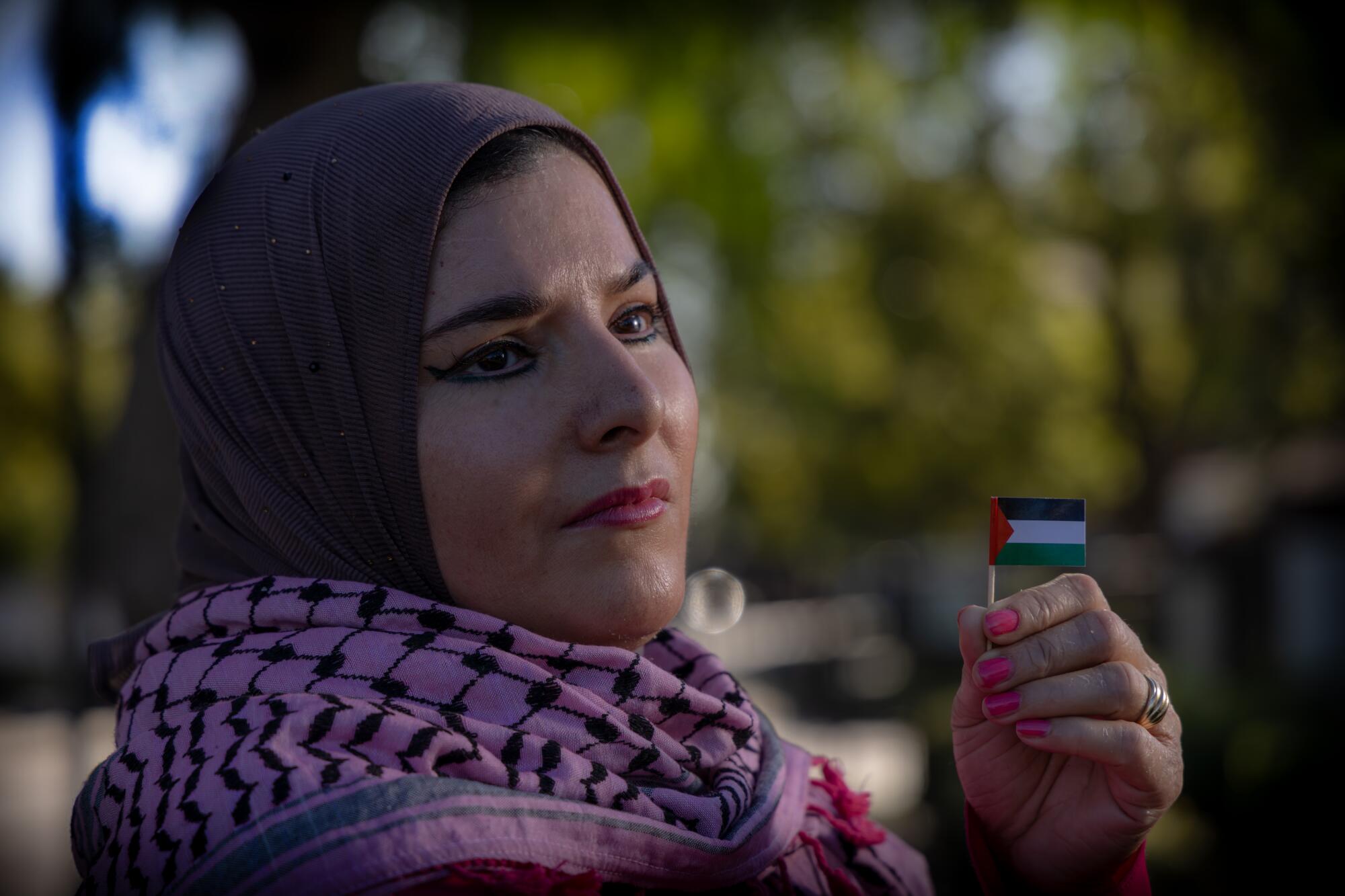
She focused on the phrase they’d taught her as a girl — “Fight hate with kindness” — and reflected on how the inspiration for her company grew out of the painful days after the 2015 terrorist attack in San Bernardino, when two people carrying assault rifles opened fire during a holiday banquet, killing 14 people.
The shooters were Muslim and, in the days that followed, Muhammad said, she noticed that when people at the supermarket spotted her head scarf they refused to make eye contact. While in line at Target, a man turned to her and said, “Go back to your country and learn English!”
“I was raised here,” she told him.
Perplexed, the man walked off.
“There were so many false narratives about Muslims, that we’re these bad people,” she said. It was wrong and exhausting, so when her daughter, then a preteen, encouraged her to start a company making knafeh, she mulled it over.
In 2018, the mother-and-daughter duo opened their company, whose slogan is “Serving royal happiness and unity with every bite.” She’s heard from customers through the years who told her they’d once harbored hateful views of Muslims, but told her that learning about the company — both its mission and the fact that a Muslim American woman owns it — had been eye-opening.
“Underneath our skin, we all have the same veins,” she said. “We have more similarities than differences — we all want safety, we all want love.”
Despite the pain of recent weeks, she said, she has taken deep solace in the encouragement she has received from customers, including some who are Jewish. This week, she said, a customer messaged her saying she’d been researching Arabic and wanted to learn how to say a specific phrase:
“Sorry for your grief.”
Times staff writer Gabriel San Román contributed to this report.
More to Read
Inside the business of entertainment
The Wide Shot brings you news, analysis and insights on everything from streaming wars to production — and what it all means for the future.
You may occasionally receive promotional content from the Los Angeles Times.
